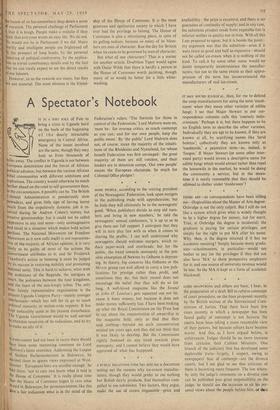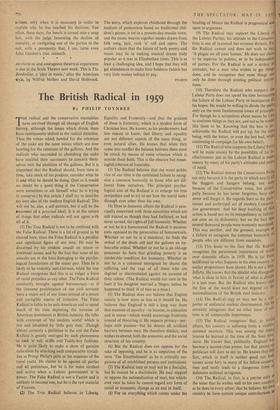LORD SHAWCROSS and others are busy, I hear, in the
preparation of a draft Bill to reform contempt of court procedure, on the lines proposed recently by the British section of the Iiiternational Com- mission of Jurists. That there have been few cases recently in which a newspaper has been found guilty of contempt is not because the courts have been taking a more reasonable view of their powers, but because editors have become warier. And this, as I have argued before, is unfortunate. Judges should be no more immune from criticism than Cabinet Ministers. One branch of the judiciary that has developed sonic deplorable traits—largely, I suspect, owing to newspapers' fear of contempt—are the divorce courts; but I am glad to ,see that criticism of them is becoming more frequent. The law where- by only the judge's comments on a divorce case can be published puts great responsibility on the judge; he should use the occasion to air his per- sonal views about the people before him, Or their actions, only when it is necessary in order to explain why he has reached his decision. Too often, these days, the bench is turned into a soap box, with the judge lamenting the decline of morality, or castigating one of the parties to the suit, with a pomposity that, I see, turns even John Gordon's iron stomach.















































 Previous page
Previous page